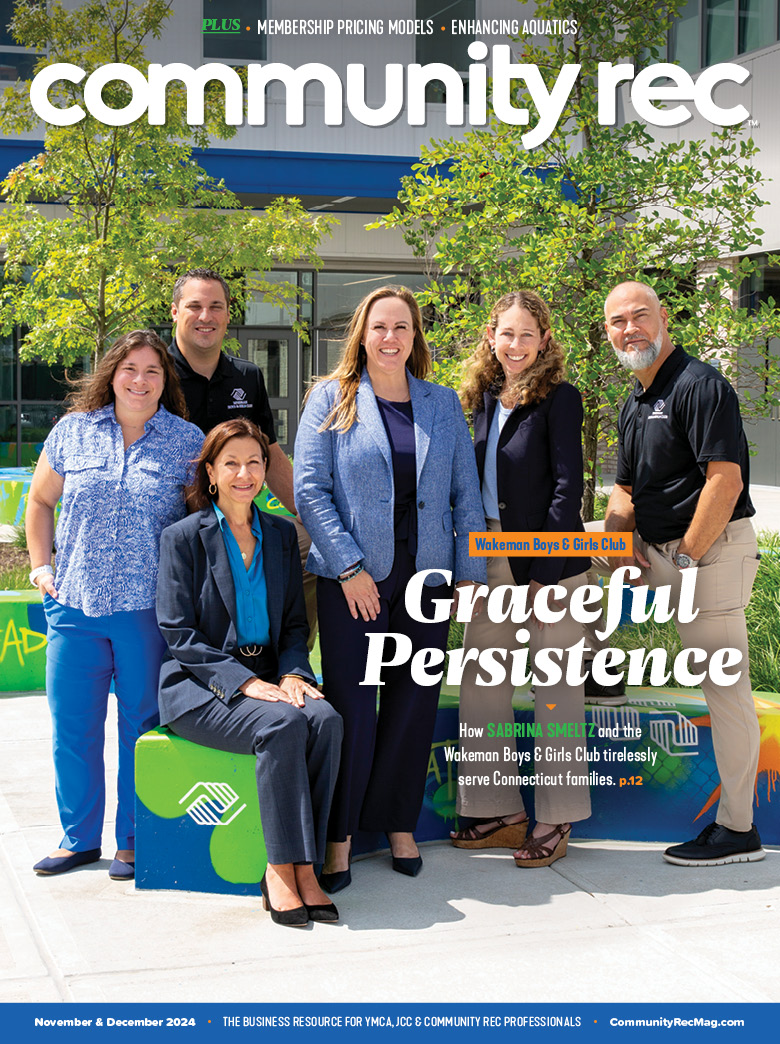After 36 years of dedicated service, David Fagerstrom, the president and CEO of the Greater Valley YMCA, will be retiring from his position later this year and transition into a consultant role for the Y. But before he steps aside in September, Fagerstrom provided lasting advice for how community recreation centers can prepare the next generation of leaders.
“As with every generation before, I feel older generations can serve best by being a bridge and sharing our experiences but also by stepping aside to allow for new ideas and approaches,” said Fagerstrom. “It really is a balancing act of accepting the old way is not necessarily the ‘only’ or ‘best’ way. The key is to share what has worked or not worked before and then allow those younger staff, who have a different lens on the world, to attempt new ways.”
Through his experience, Fagerstrom said one of the best strategies to develop employees is by providing learning opportunities through new challenges in a safe space.
“Employees need to be given the flexibility of time to gear up as well as a certain amount of expectation of failure,” said Fagerstrom. “Then, reward achievements with recognition, increased pay, position titles and increased responsibilities — all depending on the wants and needs of the individual.”
Building Culture
Saul Levenshus, the president and CEO at the Barshop JCC in San Antonio, Texas, has been in the industry for nearly 50 years. Finding balance in mentoring employees is also important for him, but making himself as accessible as possible is one of his greatest tools.
“I come from an industry and a generation where supervision and regular supervisory meetings was a standard of excellence — a way of strengthening communication and holding people accountable,” said Levenshus. “I always have an open door and a willingness to visit with anyone on our team to find out how things are going or to hear a new idea. That allows me to begin to share a piece of the culture we embrace, which focuses on respect, integrity, trust, caring and honesty. We refer to it as having a ‘RITCH’ culture.”
Creating a positive environment is essential in enabling staff to absorb and integrate the fabric of the organization into their thinking. Levenshus said to achieve that, he ensures his coworkers have a sense of belonging to something bigger than themselves.
Levenshus said establishing a strong culture includes building an ecosystem where work ethic, good communication and being respectful are expectations for everyone.
“Most importantly with new workers, you’ve got to hear them and listen to their ideas,” said Levenshus. “Challenge them to have more than one idea, because nothing is more dangerous than an idea when it’s the only one you have. It helps if you can get the individual to convey what they are passionate about. Then as an organization, we can provide some sense of how we could use someone like that on our team.”
Lasting Tips and Advice
Once a strong culture is built, Fagerstrom said management should complete the process by allowing subordinates to lead in preparation for what lies ahead. “Allow people in your organization that are not yet ready, to be a part of important leadership conversations,” said Fagerstrom. “Help individuals learn to think like a leader. Groom them from manager to leader. Allow the future cooks into the kitchen and not just as a dishwasher.”
Fagerstrom said of the next generation of leaders, they place much more emphasis on life/work balance as well as the importance of social, political and DEI issues.
“Our nonprofit mission and the impacts the younger generation can have on individuals, the community and humanity can really strike a chord with many in Gen Z,” said Fagerstrom. “Nonprofit work can provide a nexus where work satisfaction and self-realization come together for them.”
For community rec employees looking for advice on what it takes to become a strong leader, Levenshus advised not to take one’s self too seriously.
“Leadership requires we give people a reason to follow us,” said Levenshus.” If our focus is only ourselves, it can be lonely at the top. Be confident and remember while every decision you make won’t always be right, by portraying a sense of confidence you’ll start out less fearful of making a mistake which is rarely the end of the world. And finally, don’t forget to maintain a sense of humor.”
Want more resources like this sent straight to your inbox each week? Sign up for a digital subscription here.










